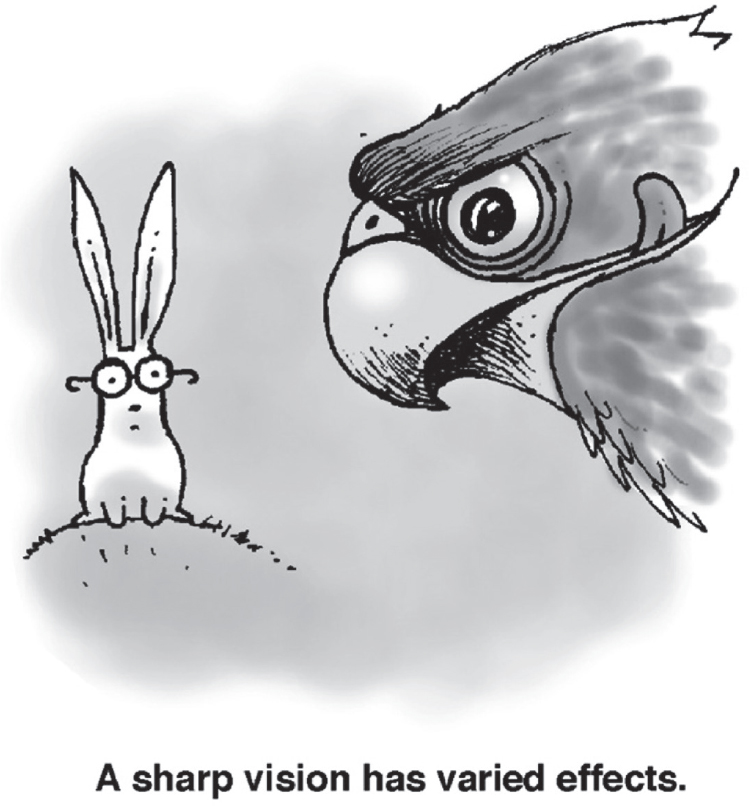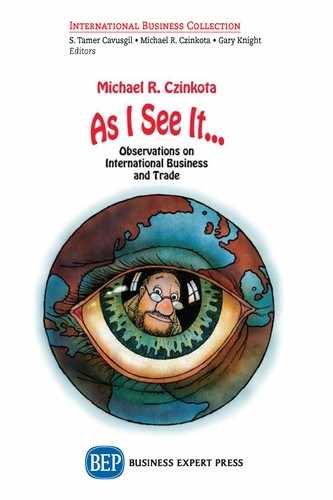Eagles Fly But Don’t Always Soar
Liechtensteiner Vaterland, Spring 2008

The world’s stock markets experience a decline. Sharp drops of shares occurred in Hong Kong, Istanbul, and Frankfurt, and many seem to blame the United States and the market approach as the causes for their predicament. Commentators now predict a serious global recession for all markets. The United States is singled out with additional forecasts promising a steep drop of the U.S. dollar, sharp reductions in U.S. military strength, and vanishing of U.S. political influence. Alas, these commentators are sadly mistaken.
All too often, forecasters are looking only at the short term. Their long term usually means next week. Yet, the world turns much slower than the typical media blurb makes us believe. Countries adjust their strategies only gradually, as do most customers, entrepreneurs, and corporations. Rather than being driven by momentary shifts, sensible thinkers search for a context, and look at the road rather than the turnoff. Take the current changes in share values. Financial markets have changed for many years—and typically, in the past few decades, it has been for the better. Families, towns, provinces, and nations have improved their lot. Health care has improved, both in terms of pharmaceuticals and in care delivery. Housing has become better, and education, a crucial ingredient of progress and growth, now reaches many more than ever before. Incomes are strong.
Today, there is much more ability to achieve, accomplish, and to accumulate. There is less famine, more opportunity, and more freedom. Life is best it’s been in millennia. It is human nature to strive upward and therefore not be satisfied with the status quo. But such a drive should concentrate not just on a few select economic issues of the moment. We have even come to the point where mere stability and constancy are seen as wrong and as indicative of “falling behind.” Imagine an executive who told his shareholders that he wants his company’s sales to remain stable—most analysts would probably run him over on their way to other firms. But isn’t stability in itself worthwhile and good? What ever happened to catching one’s breadth! As children, many of us read stories and books about “getting ready for a rainy day.” By doing so, there was no implication that temporary setbacks were a fatal disease. Rather, there was an acceptance, forged from experience with Mother Nature that there are seasons, and that life has its ups and downs. Even eagles occasionally descend to lower heights so that they can catch an updraft and soar again. There is nothing to be ashamed of if resources have to be rearranged and if one accepts that not everything is linear. Think of growth in the context of angles on a protractor: Growth does not always have to take place at all degrees, on all levels, and simultaneously.
For those who see the United States and the benefits of the market approach which it has propagated, in steep decline, let them look at history, as sensible people do. For example, in a recent discussion of global economics, a Chinese acquaintance readily agreed that his nation had perhaps had a bad run which lasted a century, but he assured me that China was now ready to again become the center of the world. Think of the long-term and ongoing contributions of the United States to world economic growth and welfare. In the 1940s, the country pioneered the three key international organizations which form the pillars of world trade and investment: The International Monetary Fund (IMF), the World Bank, and the World Trade Organization (WTO). Without them, the world economy could never have reached its current level of success. Through joint efforts on the exchange rate front and a willingness to rely on market-based exchange rates, the United States ensured growing money supply which has led to rising economic abundance. The country’s willingness to be the largest marketplace to the world has provided opportunities for innovation, growth, profit, and enjoyment to many. And all this has been achieved within a system that provides for political adjustments and transitions without unchecked power, bloody battles, or economic destruction.
The United States remains the land of opportunity where one can realize dreams under open skies. It continues to be a key destination for immigrants, because they know that vision is admired, that effort is rewarded, and that achievement is supported. There is security and safety in the land, and there is flexibility to adjust to new conditions. Even in times of temporary setbacks, the outlook is bright. Trust, promise, and the future that a nation offers to those holding its investments, its currency, and its contracts are the long-term key dimensions which define global leadership. Those who believe that the United States is in terminal decline should remember that the Roman Empire lasted more than 700 years, the Ottoman Empire almost 600, Britain’s for 350 years. They too had their ebb and flow, and they demonstrated that good expectations for the longer-term future together with internal cohesion provided sufficient impetus for continuing success. The best is yet to come.
